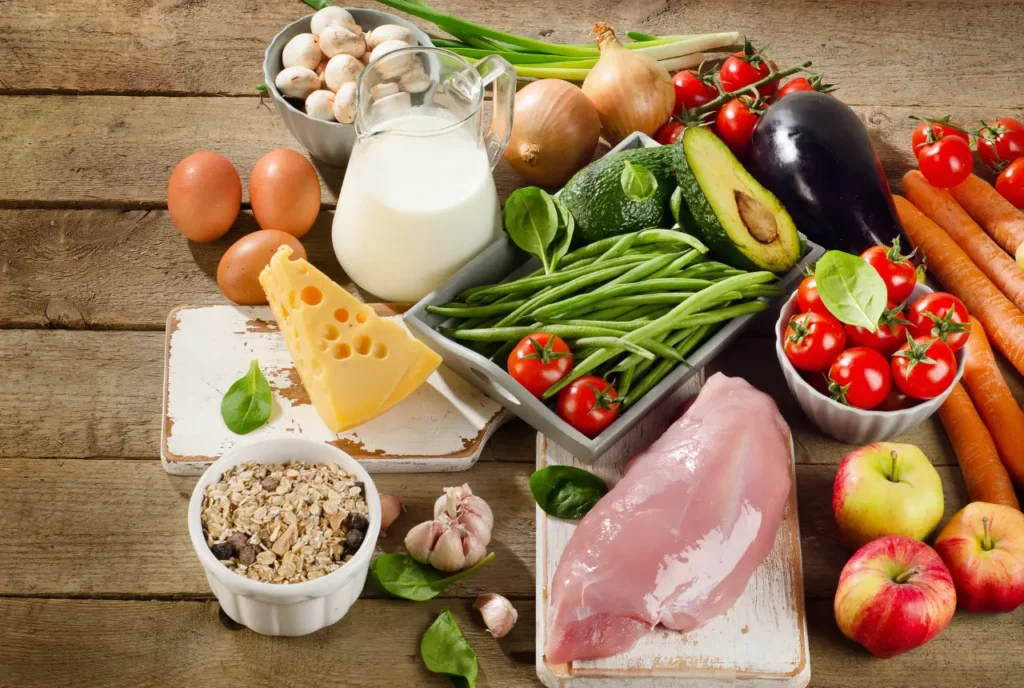
-
 Posted By Dr. Amritangsu Borkakoty
Posted By Dr. Amritangsu Borkakoty -
-
Comments 0
Jaundice is a condition identified by the yellowing of people’s skin, eyes, tongue, and urine due to the presence of excess bilirubin in blood secreted by the liver. Bilirubin is a waste product produced in the liver by the breakdown of red blood cells.
Other symptoms of this condition can include fatigue, dark urine, loss of appetite, and unable to taste. Read the blog to the end as we discuss how to prevent jaundice during summer.
While jaundice can happen to people anytime during the year, there is a substantial increase in its occurrence during the summer season. This is because people are more likely to drink dirty water in the summer.
If the water source isn’t stable, it’s more likely to get contaminated, which raises the risk of jaundice even more. People think that sewage getting into drinking water is the main reason why so many people get jaundice in the summer.
Prevent Jaundice During Summer with These Methods
1. Stay Hydrated

Dehydration is a major risk factor for jaundice, especially during summer. When your body doesn’t have enough fluids, it can’t effectively flush out bilirubin, leading to a buildup in your system.
Aim to drink plenty of fluids throughout the day, even if you don’t feel thirsty. Experts recommend consuming around eight glasses of water daily, but you may need to adjust this based on your activity level and the weather.
For a refreshing and hydrating summer drink, choose water infused with fruits like cucumber, lemon, or berries. Coconut water is another excellent option, as it naturally replenishes electrolytes lost through sweat.
Buttermilk, a traditional yogurt-based drink from the Indian subcontinent, is also a great choice due to its probiotic content and cooling properties.
2. Practice Safe Food Handling
Foodborne illnesses caused by bacteria, viruses, or parasites can increase your risk of developing jaundice. During the hotter summer months, foodborne illnesses are more common due to faster bacterial growth.
To minimize this risk, practice safe food handling techniques by thoroughly washing fruits and vegetables before consumption. Ensure proper storage of cooked and perishable foods in the refrigerator.
Maintain good hygiene in the kitchen by washing your hands frequently with soap and water, especially before handling food.
3. Maintain a Balanced Diet

A healthy diet rich in fruits and vegetables is crucial for overall health, including liver function. During summer, focus on incorporating plenty of colorful fruits and vegetables as they are rich in antioxidants and vitamins that help your liver detoxify. Leafy greens like spinach and kale are particularly beneficial.
Beetroot and carrots are also excellent choices, as they contain compounds that support liver health. Limit processed foods, sugary drinks, and excessive red meat, as these can put a strain on your liver.
4. Limit Alcohol Consumption
Excessive alcohol consumption is a well-known risk factor for liver damage and can contribute to jaundice. The liver is responsible for processing alcohol, and heavy drinking can overwhelm this function, leading to a buildup of toxins and bilirubin.
Limit your alcohol intake, particularly during the hot summer months when your body is already working harder to stay cool. Ideally, consider abstaining from alcohol altogether to give your liver a break.
5. Protect Yourself from Heatstroke
Heatstroke is a serious condition that occurs when your body overheats and can’t cool itself down. Dehydration is a common symptom of heatstroke, and as mentioned earlier, dehydration can lead to jaundice.
To prevent heatstroke, wear loose-fitting, breathable clothing and stay in the shade during the hottest part of the day (usually between 11 am and 4 pm).
Avoid strenuous activity during peak heat hours and prioritize activities that keep you cool, like swimming or spending time in air-conditioned spaces.
6. Get Regular Checkups

If you have risk factors for jaundice, such as a history of liver disease or a family history of jaundice in newborns, consulting with your doctor for regular checkups is essential. Early detection and treatment of underlying conditions that can contribute to jaundice can significantly improve your overall health and prevent complications.
7. Vaccinations for Newborns
Newborns are particularly susceptible to jaundice during the first few weeks of life. Timely vaccinations for newborns are crucial in preventing infections that may contribute to jaundice. These vaccinations help protect against viruses that can damage the liver, thereby reducing the risk of jaundice development.
Symptoms of Jaundice in Summer
Common jaundice symptoms include yellowing of the skin and whites of the eyes, dark urine, exhaustion, and abdominal pain. These symptoms may be more severe during the summer due to dehydration. If you have any of these symptoms, you should see your doctor for an accurate diagnosis and treatment.
Causes of Jaundice
Jaundice can be caused by many factors, including:
- Dehydration: As previously noted, dehydration is a significant risk factor for jaundice throughout the summer. When you are dehydrated, your body is unable to adequately eliminate bilirubin from your bloodstream, resulting in a buildup and jaundice.
- Viral hepatitis: Hepatitis A, B, and C are viruses that can harm the liver and cause jaundice.
- Certain medications: Some drugs can interfere with liver function, potentially causing jaundice.
Bottom Line
Summer is beautiful but if we are careless, we might dehydrate ourselves and not realize it. This can lead to serious health problems as the heat rises by the day. Therefore, while enjoying the season, follow the above-mentioned simple yet effective tips and tricks to keep diseases like jaundice at bay.
Some of the points need to be emphasized more than the others such as reducing alcohol consumption. Alcohol in our system drains us of our bodily fluids. This dehydration is harmful to our body’s proper functioning.
Remember, early detection and treatment are crucial for managing jaundice effectively. If you experience any symptoms like yellowing of the skin or eyes, dark urine, fatigue, or abdominal pain, consult your doctor promptly. By taking a proactive approach and incorporating these preventive measures into your summer routine, you can safeguard your liver health and enjoy the warm season to the fullest.
Recent Posts
- Common Causes of Stomach Ulcers and Effective Treatment Options
- Early Symptoms of Liver Damage: How to Spot the First Warning Signs Before It’s Too Late
- Best Treatment for Hepatitis B and C: Your Complete Guide to Symptoms, Care, and Prevention
- How to Reduce Liver Inflammation Fast: 5 Proven Tips for Rapid Liver Recovery
- Why You Shouldn’t Ignore NAFLD: 5 Shocking Health Risks You Need to Know



